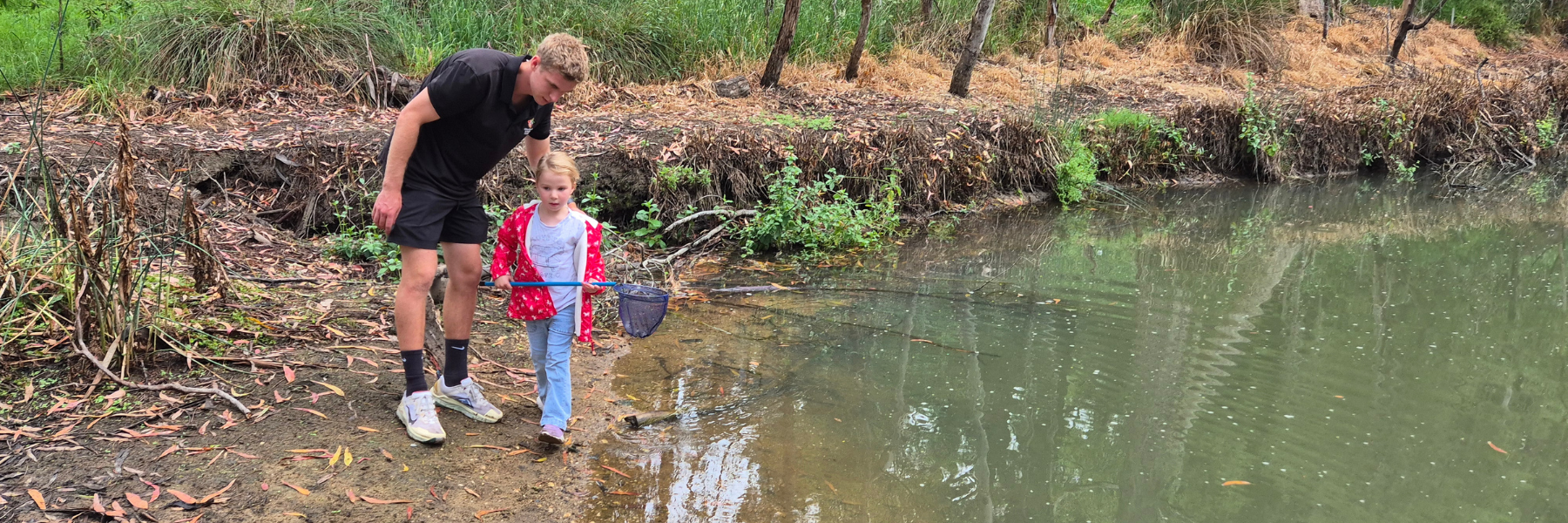At Woodhouse Adventure Park, responsible tourism is not a side project - it’s woven into everything we do. As a not-for-profit with a mission to foster healthier, more connected communities through nature-based adventure, we see it as our duty to care for people, place, and planet.
Woodhouse Adventure Park encourages visitors to "Reconnect with nature, respect the environment, and contribute to a sustainable future." The park aims to provide enriching outdoor experiences while promoting eco-friendly practices, social inclusion, and cultural respect. This message aligns with our efforts to foster mindful tourism that benefits both people and the planet.
ENVIRONMENTAL PROTECTION
FLORA & FAUNA
Woodhouse Adventure Park implements several strategies to minimise the impact of visitors on local flora and fauna:
- Encouraging Responsible Interaction with Nature:
- The park promotes screen-free, nature-based activities to foster appreciation for the environment, which can lead to more mindful behaviour from visitors.
- Visitors are encouraged to stay on designated paths and activity areas, limiting their movement across sensitive ecological zones and reducing potential habitat disturbance.
- Camping Restrictions and Fire Safety Measures:
- Woodhouse controls where visitors can camp to reduce the impact on vegetation, ensuring that sites are rotated or managed to prevent degradation.
- Strict fire safety regulations, including total fire bans during the bushfire danger season, prevent accidental harm to the natural environment.
- Limits on Visitor Numbers:
- The park limits the number of visitors and campers to avoid overcrowding, which helps reduce the pressure on local ecosystems and wildlife.
- Pet Restrictions:
- To protect native wildlife, pets are not allowed on the premises, with exceptions only for accredited assistance dogs. This minimises the risk of disturbances or harm to native species.
EMMISSIONS REDUCTION
Woodhouse focuses on sustainability by promoting outdoor experiences that align with eco-friendly values. Some of our practices to reduce emissions and environmental impact include the following:
- Nature-Based Activities: By offering low-impact outdoor activities such as orienteering, obstacle courses, and bouldering, the park minimises the need for energy-intensive infrastructure.
- Screen-Free Experiences: Programs encourage visitors to disconnect from electronic devices, promoting sustainable tourism by focusing on natural engagement over technology.
- Camping and Fire Pit Usage: During certain seasons, Woodhouse permits the use of shared fire pits, with strict controls during fire bans to align with safety regulations. This promotes energy-efficient, communal experiences while encouraging visitors to be mindful of natural resources like wood.
- Limited Onsite Services to Encourage Preparedness: Visitors are encouraged to bring their own supplies and food, which reduces the need for excessive packaging and transportation emissions associated with onsite food services.
These initiatives reflect the park’s commitment to sustainability by fostering environmentally conscious tourism and reconnecting guests with nature in a low-impact way
ENERGY EFFICIENCY
Woodhouse takes several steps to increase energy efficiency and minimise its environmental footprint:
- Unpowered Camping Areas: All camping zones at the park remain unpowered, reducing energy use associated with traditional outdoor accommodations. This encourages visitors to experience nature with minimal energy consumption.
- Efficient Facilities: The park uses gas barbeques in communal areas, which are more energy-efficient than some electric alternatives. Shared amenities, such as showers and dining areas, optimise resource use across multiple visitors.
- Promotion of Minimal Technology Use: “digital detox” programs and air-conditioned cabins encourage visitors to reduce their reliance on electronic devices, indirectly supporting lower energy consumption during stays.
- Sustainability Accreditation: Woodhouse has achieved sustainable tourism recognition, reflecting our commitment to maintaining eco-friendly operations. This includes efficient use of resources and aligning practices with sustainability standards set by tourism organisations






